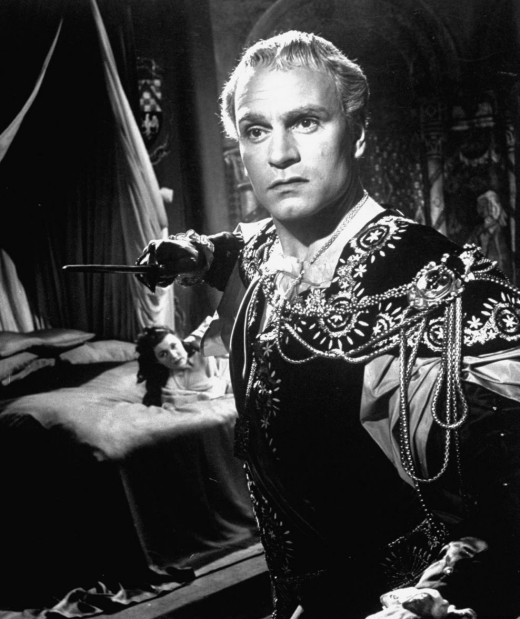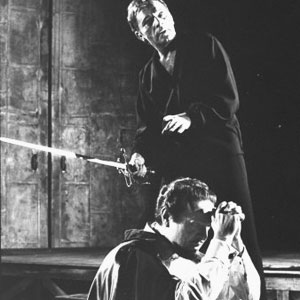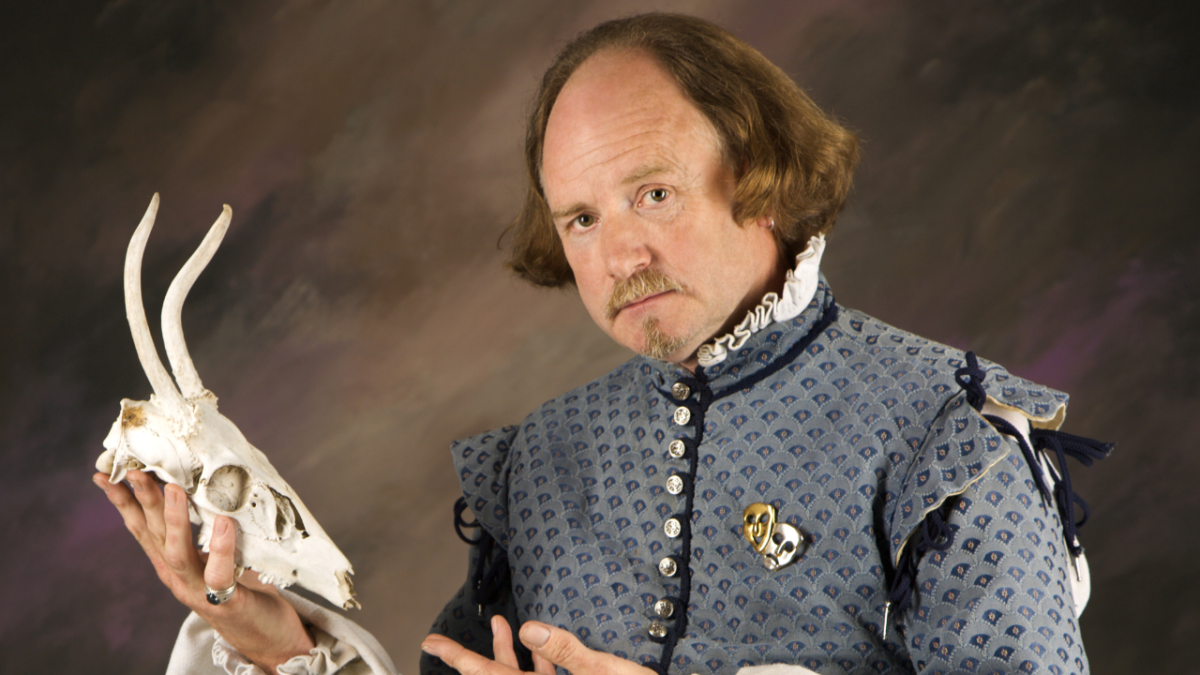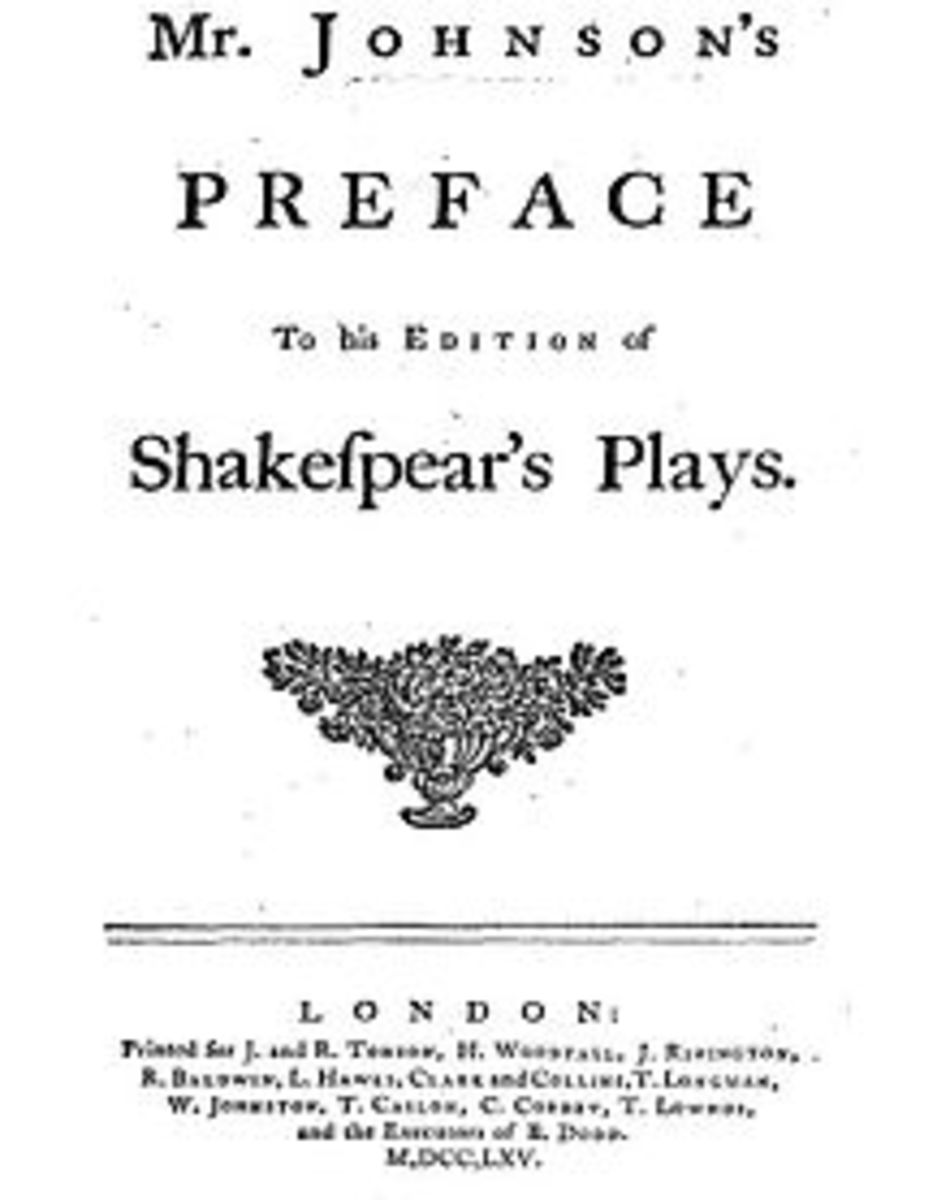- HubPages»
- Books, Literature, and Writing»
- Literature»
- English Literature
The Darkness in Hamlet

In Shakespeare’s tragedy Hamlet, the main character is consumed in a darkening depression, which conflicts his will to seek out revenge for the death of his father. Hamlet is filled with a deep sadness that cannot be swiftly relieved, though his mother and stepfather expect him to “get-over it”. Hamlet is not only plagued by the death of his father, but also overwhelmed with the callous attitude of his parents. Hamlet is filled with the multiple clashing emotions that stirs up darkness within him. He allows the ideas of revenge, murder, and suicide to enter into his heart, where only a cavernous depression can lead.
In Act One Hamlet displays his mourning for his father not only in attitude and in expression but also in apparel. King Claudius, Hamlets stepfather and his mother Queen Gertrude were soon married after Hamlet’s father’s death, but only for the “safety” of the kingdom. Hamlet carries a sharp sarcasm with his new father. Claudius refers to Hamlet as his son, which Hamlet snidely remarks, “A little more than kin, and less than kind!”(1.2.65), meaning Claudius is not of his blood nor does he look like Claudius. Hamlet is clearly irritated with Claudius using him under the name “son”. Not only is Hamlet’s stepfather antagonizing him to somehow dust off his shoulder of his father, Hamlet’s mother is annoyed with his black mood and apparel, “Good Hamlet, cast thy nighted color off…thou knows’t ‘tis common; all that lives must die” (1.2.70,74) Hamlet sarcastically responds, “Ay, madam, it is common.”(1.2.13) With each prick of the careless words of his mother and stepfather, Hamlet is pushed into grief and moral confusion. Claudius’ eloquent speeches are hidden with cruel jabs to Hamlet, but Hamlet is not fooled. Claudius calls Hamlet’s grief “unmanly”(1.2.94), “unschooled”(1.2.97), and not to “take it to heart”(1.2.101). Of course Hamlet is then pulled deeper into his depression.
Claudius tries to push him out of grief before Hamlet is ready to take off his black veil of mourning, which leads Hamlet to confess a speech, of greater anguish. Hamlet considers freeing himself of this cruel world, ”Or that the Everlasting had not fixed His cannon ’gainst self-slaughter.” Hamlet is in a state of moral questioning, it is against the law to kill himself, as well as Gods law, but he is sickened by the woes of the world, “How weary, stale, flat, and unprofitable seem to me all the uses of this world!” (1.2.134). He refers to life as an “unweeded garden”(1.2.135) when not tended it grows “rank and gross”(1.2.136). When one does not have a purpose in life, life is not valued. Hamlet is then reminded of Claudius and his mother getting married only two months after his father’s death. Hamlet is burdened with death, judgment, a new father, and a selfish mother. He is enticed by the evil voice of death, a voice that makes death sound like a gift. Once the darkness begins to seep in, evil begins its work at the heart, creating an anger that may never be cured.

Hamlet is alone, debating taking his life when his friend Horatio tells him he has seen the ghost of his father. Hamlet’s father tells the story of how he was murdered by his brother; Claudius. His father wants Hamlet to seek justice for him and kill Claudius. And so Hamlet’s purpose to struggle through life a little longer begins. A vengeful purpose only leads to a deeper anguish, and even death, God says that we are to leave justice up to Him. We are to forgive always and to be always kind; it is kindness that will always comes out victorious. So God relieves us of the painful grief, resentments and vengefulness that can so heavily weigh upon us.
Hamlet’s grief has multiple layers that quickly change from one mood to another. He has just seen the ghost of his father and is reminded of him and filled with a deep sadness, he yearns for comfort. After his encounter with his father’s ghost, he goes to Ophelia, his love. Though the story of Hamlet is not centered on the love of Ophelia, he does love her; he is just too unstable to respond to it correctly. Ophelia runs to her father after Hamlet confides in her. she told him of how he shook her and grabbed her wrists. She ultimately felt he had gone mad and did not see the deeper truth that Hamlet needed to be comforted. Ophelia was shocked by his fierce emotions and assumed Hamlet had gone mad. Love is supposed to be understanding of grief and pain, love is supposed to be comforting. Hamlet has no one to comfort him, even his own mother. Now he has no way of being consoled, his heart turns to a bitter anger.
Hamlet plots a play to be done in front of his mother and Claudius to reenact the night Claudius killed his father. Not only does Hamlet want to test the truth of his fathers ghost but he also wants the satisfaction of seeing Claudius writhe in his seat. Before the play begins, Hamlet is stricken with another longing to be dead. In his famous lines he asks the one question many of us ask ourselves, “To be, or not to be…for who would bear the whips and scorns of time””(3.1.56,70), such a small statement for such a dangerous question. “The undiscovered country, from whose bourn. No traveler returns, puzzles the will, and makes us rather bear those ills we have, than fly to others that we know not of? Thus conscience does make cowards of us all.”(3.1.79-83), Hamlet does not want to be a coward, but it is more courageous to endure the hardship of life than to quit a life. Hamlet is slowly numbing his conscious of the idea of killing Claudius. Before the play begins Polonius tells Hamlet that he has been in a play before, “I did enact Julius Caesar. I was killed I’ th’ Capitol; Brutus killed me.”(3.2.15), Hamlet ignores his comment, but it is a foreshadowing of Hamlet accidentally killing Polonius.
During the play Hamlet devises, Claudius’ sin is written all over his face, and he goes to his room with sickness. Claudius has proved to Hamlet that his father’s ghost was right. Hamlet follows him and sees he is praying to God, trying to ask for forgiveness. Claudius struggles to admit his sin, for he does not want to take it back, thus he cannot be forgiven, “My words fly up, my thoughts remain below. Words without thoughts never to heaven go.”(3.397-98) Hamlets morality twists his feelings and he cannot kill Claudius as he is praying. So Hamlet runs to his mothers room to take his tormenting anger out on her. He needs to release his anger and he releases it like “daggers”(3.4.96). Though when speaking “daggers” it is double edged, for sooner or later those daggers cut the user too. Hamlet tells his mother she is a fertilizer of his woes “do not spread the compost on the weeds to make them ranker.”(3.4.52-53) He hears a rustling behind a curtain in his mother’s room, and in his heated anger, thinking it is Claudius come to spy, he stabs the curtain. Not realizing his victim, until Polonius’s voice writhes out in pain. In this moment Hamlet was emotionally and physically ready to kill Claudius, it was just his fate that Polonius was behind the curtain. For the start of Hamlet’s mission to kill Claudius there has been a moral veil, or curtain, keeping Hamlet from killing him. Now his sword, allowing him to impinge upon the death of Claudius, has removed that curtain. Fortinbras and his revengeful army inspire Hamlet to continue with his task of killing Claudius. Hamlet has realized that his emotions have set back his purpose, he himself does not know why he hasn’t killed Claudius yet, “Of thinking too precisely on th’ event-A thought which, quartered, hath one part wisdom. And ever three parts coward-I do not know. Why yet I live to say, “This thing’s to do,” sith I have cause, and will, and strength, and means to do’t.”(4.440-45) Hamlet thinks he has been a coward for not acting out his revenge sooner, but it is cowardly and weakness to let the darkness win.

Hamlet devises a letter to twist Claudius’ plans of having him executed, and instead Rosencrantz and Guildenstern are executed. Once, again Hamlet kills without seeing the victim’s faces as he kills them. When Hamlet gets back to Denmark, Laertes in want of revenge of his father’s death challenges Hamlet to a fencing match. When Hamlet agrees to the match, he is really agreeing to his death. He is now fully numb to the idea of dying as well as taking his revenge on Claudius. Laertes’ sword tip is poisoned. Claudius has poisoned a drink for Hamlet. Hamlet is stabbed by Laertes’ sword, dying he stabs Claudius with Laertes poisoned sword and also makes him drink the poisoned cup. In the end, Gertrude, Claudius, Laertes and Hamlet all die from poison, an image that displays they were all poisoned with guilt, selfishness and revenge.

Hamlet is continually plagued with the woes of the earth. As he talks of the grave and how men die, he says that men just return to “dust”. Hamlet is in complete turmoil because he has no true purpose. If he only knew that with God, death is only sleeping. Our bodies return to the soil to nourish the earth, and we to an everlasting peace. Hamlet doesn’t realize that the purpose of life is to be the tender of the garden. Yet, the weeds choke him and bring him down to seek revenge on Claudius. Hamlet had a choice; he could have left and went to school. He could have refused the dark force of his father’s ghost and left rotting Denmark behind, for if you live around the rot, you may become the rot. It is strength that pulls us from the weeds, our purpose is to help others be plucked from a rotted ground into a soil that is nourishing and inspires richness.



